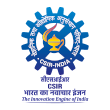On 27th December 2019, as the entire world was gearing up to bid farewell to 2019 and welcome 2020, a piece of news that would change the face of the world very soon, went unnoticed. On 31st December 2019, the World Health Organization (WHO) reported that a mysterious pneumonia has been detected in the Wuhan city of China. On 10th January 2020, scientists identified that the pneumonia was caused by SARS-CoV-2 or coronavirus, a word that was soon to become a household name.
The new year quickly changed into one of apprehension. The first death due to the virus was reported on 11th January 2020 and the numbers kept increasing by the day. The situation was scary and depressing and no one knew how to handle the virus.
 As the infection spread, countries across the world imposed lock-downs to arrest the spread. The first indications from WHO were that the spread of the infection was through surface transmission. It was advised to wash hands frequently, use hand sanitizers, avoid touching eyes, nose and mouth and importantly, wear masks in public places. With hand sanitizers and face masks being in short supply, many scientific organizations in India began producing the vital supplies. The CSIR-IICT team also quickly took measures to meet the demand of sanitizers and masks. However, as infections abounded, it was soon clear that “test, track and treat” would be the approach to follow. Drugs were required to treat the COVID-19 infected patients. Given that drug development is a long drawn process, finding a new drug immediately was impossible. Globally, research was focussed on identifying old drug molecules which could be effective against coronavirus. A few such existing drugs identified were: favipiravir, remdesivir, umifenovir, dexamethasone etc.
As the infection spread, countries across the world imposed lock-downs to arrest the spread. The first indications from WHO were that the spread of the infection was through surface transmission. It was advised to wash hands frequently, use hand sanitizers, avoid touching eyes, nose and mouth and importantly, wear masks in public places. With hand sanitizers and face masks being in short supply, many scientific organizations in India began producing the vital supplies. The CSIR-IICT team also quickly took measures to meet the demand of sanitizers and masks. However, as infections abounded, it was soon clear that “test, track and treat” would be the approach to follow. Drugs were required to treat the COVID-19 infected patients. Given that drug development is a long drawn process, finding a new drug immediately was impossible. Globally, research was focussed on identifying old drug molecules which could be effective against coronavirus. A few such existing drugs identified were: favipiravir, remdesivir, umifenovir, dexamethasone etc.
The other solution was to develop a vaccine against COVID-19. One of the ways to do this was to isolate the virus, deactivate it and then inject a miniscule quantity of the virus into a healthy person and allow the body to develop antibodies against the infection. In another way to develop the vaccine, the scientists identified a part of the mRNA of the virus (SARS-CoV-2) and prepared a vaccine using this.
 Even as vaccine development initiatives were underway in many countries, Bharat Biotech India Limited (BBIL) approached CSIR-IICT with a challenge in synthetic organic chemistry. The synthetic route to developing a vaccine had several steps that required tedious chromatographic purifications. The conditions for purification were not validated and the team had to develop and establish analytical methods to identify the impurities. The final compound characterization was a major challenge as the reference compound was available in very minute quantities and qualitative and quantitative analysis of the product was a bigger challenge. The structure and nature of the molecule was established using X-ray crystallographic technique.
Even as vaccine development initiatives were underway in many countries, Bharat Biotech India Limited (BBIL) approached CSIR-IICT with a challenge in synthetic organic chemistry. The synthetic route to developing a vaccine had several steps that required tedious chromatographic purifications. The conditions for purification were not validated and the team had to develop and establish analytical methods to identify the impurities. The final compound characterization was a major challenge as the reference compound was available in very minute quantities and qualitative and quantitative analysis of the product was a bigger challenge. The structure and nature of the molecule was established using X-ray crystallographic technique.
The most important challenge was to firstly synthesise the compound in gram quantities and then in kilogram quantities. The synthetic route identified by the innovators used many corrosive or expensive chemicals which added to the cost, resulting in several by-products that were difficult to treat thereby increasing pollution. Also, the yields at many steps were very low. The CSIR-IICT team worked on one synthetic step at a time, avoided use of corrosive or expensive chemicals, improved yields and reduced by-products.
Eventually, CSIR-IICT developed a novel, cost-effective and scalable process for the synthesis of TLR 7/8 agonist molecule (IMDG), used as an adjuvant in Covaxin. The approach consisted of a high yielding and environmentally benign chromatographic-free method. Working under the pandemic induced restrictions, CSIR-IICT team developed a new synthetic process involving 10-steps, which used all the key raw materials and chemicals available indigenously. The sample was prepared initially in gram quantities. The developed process was further optimised to scale up at kilogram scale.
Thus, CSIR-IICT played a significant role in the manufacture of the country’s first indigenous vaccine, Covaxin, which showed excellent prophylactic activity due to the adjuvant system that almost doubled the efficacy of the vaccine. Covaxin contains immune-potentiators, known as vaccine adjuvant systems, which are added to the vaccine to boost its immunogenicity. The complex TLR 7/8 agonist molecule having imidazoquinoline framework (IMDG) is used in combination with aluminium hydroxide as an adjuvant system in the vaccine.
Dr S. Chandrasekhar, Dr Ch. Raji Reddy, Dr Prathama S. Mainkar, Dr M. Mohana Krishna Reddy, Dr N. Jagadeesh Babu and Dr P. Nagender of CSIR-IICT worked on the process for scaling up the production of the adjuvant that made the vaccine affordable, accessible and protecting approximately thirty crore Indian citizens from severe infection. These efforts were acknowledged by CSIR by conferring the CSIR Technology Award 2021 on the CSIR-IICT team.
The vaccine has been approved to be administered to children in the age group of 12-18 years, and also the US FDA has considered Covaxin as a vaccine candidate in the USA. Team CSIR-IICT is proud of its contributions in making the vaccine available across the globe and at the same time humbled by the opportunity to serve the nation.
Srivari Chandrasekhar a, Prathama S Mainkar b and Chada Raji Reddy b
aDepartment of Science & Technology
bCSIR-Indian Institute of Chemical Technology

 Pensioners Corner
Pensioners Corner Screen Reader Access
Screen Reader Access Skip to main content
Skip to main content






















